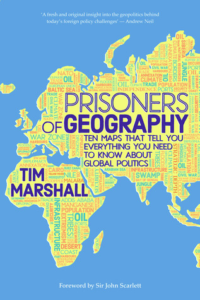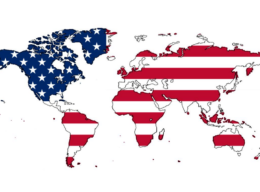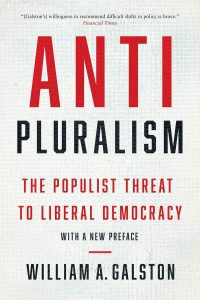Tag: pluralism
-
December 1, 2022 Alain de Benoist
The Populist Moment, Chapter 6:
Liberalism & Morality -
Part 4 of 4 (Part 1 here, Part 3 here)
Translated by F. Roger Devlin
The history of modernity can be understood at least in part as a gigantic process of uniformization. Induced by philosophico-moral or political universalism and the diffusion of techniques for the modeling of behavior more effective than those of the most centralized dictatorships, it has expressed itself in the West by the gradual eradication of differentiated ways of life, (more…)
-
 1,531 words
1,531 words 1,531 words
1,531 wordsTim Marshall
Prisoners of Geography: Ten Maps That Tell You Everything You Need to Know About Global Politics
London: Elliot and Thompson (2015)
The physical realities that underpin national and international politics are too often disregarded in both writing about history and in contemporary reporting of world affairs. Geography is clearly a fundamental part of the “why” as well as the “what.” (more…)
-
William A. Galston
Anti-Pluralism: The Populist Threat to Liberal Democracy
New Haven: Yale University Press, 2018“It is time for an open and robust debate on issues of immigration, identity politics, and nationalism that liberals and progressives have long avoided.”—William Galston
Galston is right. (more…)
-
September 30, 2013 Leonid Savin
Mito, Utopia e a Realidade do Pluriverso
975 words
English original here
De modo a traçar os contornos futuros do espaço geográfico global dentro das perspectivas da luta revolucionária e da ideologia política nós devemos começar com uma clara estrutura metodológica.
Minha tese é bastante simples e é baseada em uma proposição de Georges Sorel sobre a dicotomia entre formações sociais e políticas. Ele dividiu estas em dois tipos: (more…)
-
905 words
Portuguese translation here
Georges Sorel divided social and political formations into two types: (1) those which had a myth as the basis for their ideology, and (2) those which appealed to utopian ideas. The first category he attributed to revolutionary socialism, where the true revolutionary myths are not descriptions of phenomena, but the expression of human will. (more…)
-
Translated by Michael O’Meara
Editor’s Note:
The idea of the “cause of the peoples” is associated primarily with Alain de Benoist. It is an attempt to fuse European ethnonationalism with a kind of liberal universalism by asserting that European ethnonationalists are not merely fighting for their own cause, but for the cause of all peoples to preserve their distinctness (more…)




